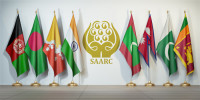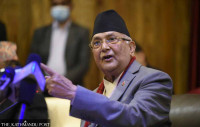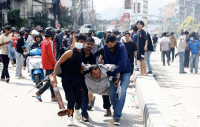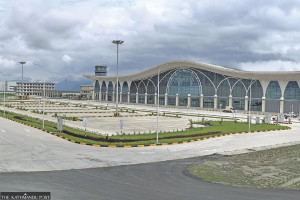Opinion
Sea of troubles
Nepal should resort to international laws and effective diplomacy to end the unofficial blockade by India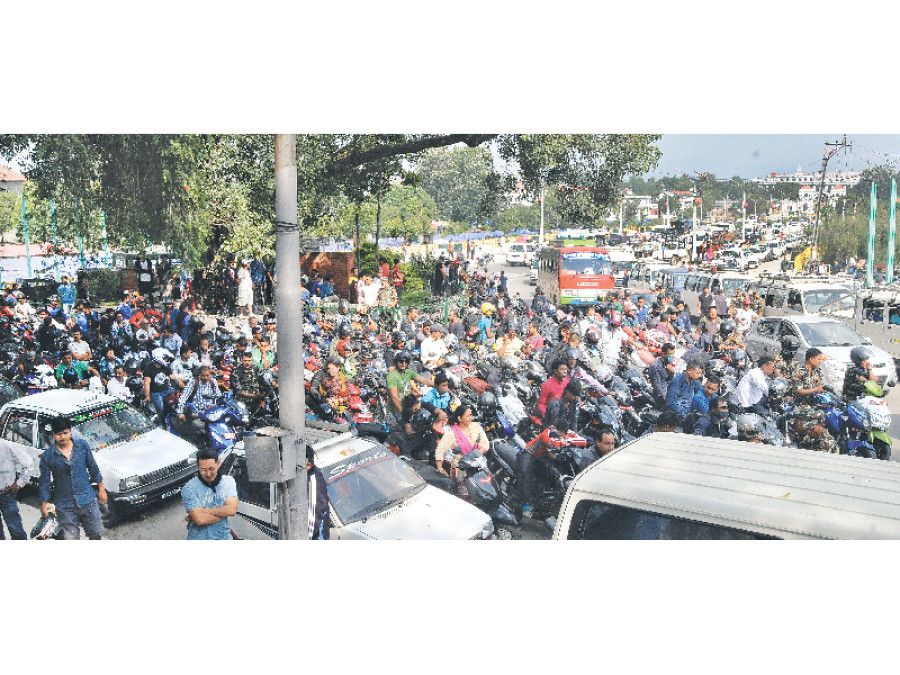
Tejman Shrestha
In 1776, Scottish economist Adam Smith observed that African and Asian landlocked states were the least economically developed countries in the world due to trade difficulties. Currently, there are a couple of international instruments which argue that landlocked countries should be given transit access as international customary law. Despite such instruments, India has unofficially closed all the trade routes used by Nepal to import supplies. However, this is not the first time that India has imposed an economic blockade on Nepal. We still have a clear memory of 1989 when India closed 19 out of the 21 trade routes and 13 out of the 15 transit routes of Nepal.
Freedom of transit
According to public international law, it is illegal for one state to impose an economic blockade on another. In 1998, the UN General Assembly passed a resolution stating that a country cannot impose a blockade on another country while addressing the US embargo against Cuba. As a member of the UN, India also has an obligation to observe and respect the sovereign equality of other states and the fundamental rights of the people.
The UN Charter only permits the Security Council to impose an economic blockade, and only if the concerned state has endangered international peace and security. Furthermore, Hersch Lauterpacht, a member of the UN International Law Commission from 1952 to 1954, argues that the legal right to freedom of transit exists independently of any treaty.
When there are disputes between UN members, they can be settled by the International Court of Justice (ICJ). Very recently, the ICJ declared that the denial of transit access to Bolivia by Chile is admissible at the court. There are basically two principal international instruments that govern the rights of the LLCs, namely the Barcelona Convention and Statute on Freedom of Transit of 1921, and the Convention on the Law of the Sea of 1982. Both Nepal and India are party to the Barcelona Convention. This convention has not explicitly provided right of free access to landlocked states but has also provided freedom of transit.
Nepal ratified the 1982 Convention on November 2, 1998 while India had already done so on June 29, 1995. Article 125 of the convention on right of access to and from the sea and freedom of transit ensures the right of the landlocked countries. As both the countries are parties to the convention, India is obligated to fulfil the treaty provision. So, irrespective of India’s stance, Nepal can take the case to the ICJ.
Under Article 18 of Vienna Convention on the Law of Treaties 1969—to which both Nepal and India are parties—India is obliged “to refrain from acts which would defeat the object and purpose” of the convention. Moreover, the right of free access as embodied in the 1982 Convention is regarded as part of customary international law. Hence, India cannot violate this obligation to ensure free transit access.
In addition, the sub-article (3) of the Article 2 of the UN Charter mentions that international disputes between member states should be settled in a manner that international peace, security and justice are not endangered. Article 55 recognises that the stability and well-being of nations are necessary for peaceful and friendly relations among themselves. Similarly, Article 56 requires all members to pledge to take joint and separate actions in cooperation with the UN for achieving universal respect for human rights and economic development as set forth in Article 55. So, India’s aspiration to be a permanent member in the Security Council will be influenced by its commitment towards human rights. Thus, this is a good time for Nepal to negotiate with India diplomatically besides seeking justice through the ICJ.
Use diplomatic channels
But as it is not so easy to implement a decision of the ICJ as it is to implement a domestic court verdict, Nepal needs to use its diplomatic channels effectively and efficiently. The ICJ should be the last resort. Besides, the above-mentioned two UN conventions, there is the Convention on Transit Trade of Landlocked Countries of 1965 which lists the rights of transit of landlocked states. Interestingly, India was one of the drafters of that convention. The governments of 58 states, including India, were represented at the conference that drafted and finalised the act. So, as a drafter of the convention, India has to respect the transit access of Nepal. Principle I of the convention mentions that the right of each landlocked state to free access to the sea is an essential principle for the expansion of international trade and economic development. Nepal ratified this convention on August 22, 1966. But as India has not ratified the convention, it is not legally bound to follow it.
Even so, as India has ratified two binding UN conventions that recognise the rights of landlocked countries to transit access to and from the sea, Nepal has an option to seek legal remedy. But it should first do its best to resolve the current crisis by using diplomatic channels. It has to be kept in mind that the survival of the state is not only dependent on international law but also on effective diplomacy. As Nepalis are having a hard time due to the blockade, they have been behavingin a reactive manner. However, responding emotionally will not ensure a solution. Hence, legal justice based on international law must be underpinned by efficient and effective diplomacy.
Shrestha is a lecturer of international human rights law at Nepal Law Campus, Tribhuvan University




 9.12°C Kathmandu
9.12°C Kathmandu


